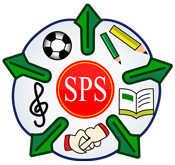English – Performance
Subject Key Objective Progression & Development by Year Groups
The following is a guide to help you understand your child’s progression through school.
All lessons are differentiated. This means teachers plan activities that enable the objective to be learned by all children including those who will find the objective challenging, those children who with hard work will secure good progress and those children who can tackle extra stretch and challenge in this subject.
This performance element covers both reading as well as speaking and listening in English.
Intent, Implementation and Impact
The curriculum is designed with our pupils and the Swinemoor community in mind.
It enables children to access and enhance their understanding of their home, their town and the wider community, developing their cultural capital and giving them opportunities and choices about their future and their impact as they progress through their school career and beyond.
This will help them become successful members of modern British society, preparing them for the challenges and opportunities.
ENGLISH – Performance
EYFS: “To join in with repeated refrains and anticipates key events and phrases in rhymes and stories.”
KS1: “To become very familiar with key stories, fairy tales and traditional tales, retelling them and joining in with predictable phrases.”
KS2: “To prepare, recite and perform familiar stories, poems and play scripts.”
EYFS:
Story (T1)
Repeat (T1)
Rhyme (T2)
KS1:
Poem (T2)
Perform (T2)
Expression (T2)
KS2:
Script (T2)
Intonation (T3)
Tone (T3)
Children may demonstrate an understanding of many familiar stories, traditional tales, poems and nursery rhymes.
This also includes myths, legends and play scripts. They may be able to show skills such as reciting texts by heart and discussing word meanings, as well as learning to appreciate rhymes and poems.
They may be able to discuss and understand how a skill of reciting, performing and comprehension will enable opportunities in later life.
They may be able to compare stories, tales and poems from different cultures, and demonstrate an understanding of the context behind cultural works of fiction.
This will demonstrate their knowledge of other cultures and traditions within the wider world.
What will be made, produced, performed, or published?
Children will demonstrate their understanding and comprehension of a text through a series of lessons, demonstrating their understanding in their responses to texts in a written form or through dialogue with peers and teachers.
What knowledge will the children have embedded?
Children will be able to recall and recite familiar texts, poems and phrases with some being recited by heart.
They will be able to discuss a wide range of texts, poems and phrases, showing their broad understanding of key texts by various authors.
Children will demonstrate knowledge of skills such as intonation and expression, ensuring their performance can be clearly understood.
What retention may be demonstrated?
Here are some example questions that may be used to assess children’s understanding.
EYFS: Can you tell me which word/ words are repeated? What will happen next?
KS1: What does expression mean? Why is this important when performing?
KS2: How can you ensure the meaning of your performance is clear to the audience? Why is intonation effective?
English – Performance – Primary Curriculum
English Performance – Foundation stage:
Joins in with simple nursery rhymes & familiar stories.
English Performance – Year 1:
Begins to recite and retell nursery rhymes, familiar stories and simple poems.
English Performance – Year 2:
Recites nursery rhymes, familiar stories and poems, beginning to use intonation.
English Performance – Year 3:
Recites and performs familiar stories, poems and play scripts, with increasing intonation.
English Performance – Year 5:
Prepares, recites and performs familiar stories, poems and play scripts by heart, with all appropriate expression.
English Performance – Year 4:
Prepares, recites and performs familiar stories, poems and play scripts, with appropriate intonation.
English Performance – Year 6:
Prepares, recites and performs familiar stories, poems and play scripts by heart, with all appropriate expression, making meaning clear to the audience.
English Performance – Mastery:
Prepares, recites and performs increasingly complex stories, poems and play scripts by heart, with all appropriate expression.

This collection of short films and resources will help you understand your child’s progression through school.
The curriculum film resource has been broken down by subject area initially and then by topic area.


